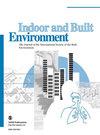在自媒体时代制定和实施环境卫生政策时防止出现偏差行为
IF 2.9
3区 工程技术
Q2 CONSTRUCTION & BUILDING TECHNOLOGY
引用次数: 0
摘要
国民健康可对政治、经济和社会领域产生重大影响,对国家发展、社会稳定和经济可持续增长具有重要作用。中国政府将健康放在各项政策的首位,大力推进环境卫生工作。然而,中国环境卫生政策在执行过程中出现的偏差,如执行过度或不彻底,可能会阻碍政策的进展。研究发现,阻碍政策有效执行的主要因素包括基层政策机制不完善、政策执行者的认知偏差、政策执行对象的接受程度不一以及环境的复杂性。为缓解这些问题,建议采取若干行动,包括完善政府机制、加强技术支持、培养人才、提高公众科学素养,以及考虑政策执行者的需求和环境复杂性。互联网,尤其是自媒体平台,可以加强政策沟通,减少信息偏差,为政策执行营造有利环境。通过有效利用自身媒体的传播机制,我们可以加强公众在环境健康方面的共识,提高公众的科学素养。这有助于消除政策制定与执行的偏差,充分发挥政策的引导作用,推动健康中国建设。本文章由计算机程序翻译,如有差异,请以英文原文为准。
Preventing deviant behaviours in the formulation and implementation of environmental health policies in the era of self-media
National health could significantly impact political, economic and social spheres, having a critical role in national development, social stability and sustainable economic growth. The Chinese government is prioritizing health in all policies and promoting environmental health work. However, deviations in the implementation of China’s environmental health policy, such as excessive or incomplete execution, could hinder progress. Studies have identified the main factors that are inhibiting effective policy implementation; these include incomplete grassroots policy mechanisms, cognitive biases amongst policy executors, varying acceptance of policy execution objects and environmental complexity. To mitigate these issues, several actions have been recommended including improving government mechanisms, enhancing technical support, developing talents, increasing public scientific literacy and considering the needs of policy executors and environmental complexity. The Internet, especially self-media platforms, can enhance policy communication, reduce information bias and foster a favourable environment for policy implementation. By using self-media’s dissemination mechanism effectively, we can strengthen public consensus and improve public scientific literacy in environmental health. This contributes to eliminating policy formulation and implementation deviations, fully leveraging the guiding role of policies and promoting the construction of a Healthy China.
求助全文
通过发布文献求助,成功后即可免费获取论文全文。
去求助
来源期刊

Indoor and Built Environment
环境科学-工程:环境
CiteScore
6.40
自引率
25.00%
发文量
130
审稿时长
2.6 months
期刊介绍:
Indoor and Built Environment publishes reports on any topic pertaining to the quality of the indoor and built environment, and how these might effect the health, performance, efficiency and comfort of persons living or working there. Topics range from urban infrastructure, design of buildings, and materials used to laboratory studies including building airflow simulations and health effects. This journal is a member of the Committee on Publication Ethics (COPE).
 求助内容:
求助内容: 应助结果提醒方式:
应助结果提醒方式:


